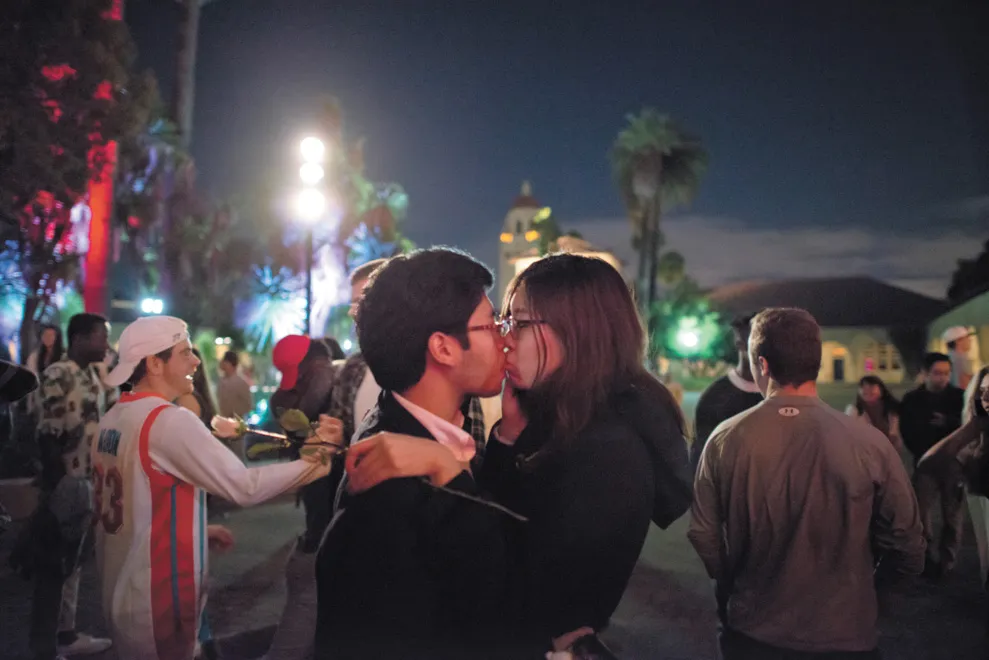Usually held in October, Full Moon on the Quad (FMOTQ) took place last Thursday after restructuring to address the administration’s concerns about drinking culture and sexual consent. Despite initial doubts over how the reimagined event would fare, both the junior class presidents and the administration thought it was successful.
FMOTQ is an annual Stanford tradition, in which students gather in the Main Quad to kiss each other under the full moon. Dating to at least the 1940s with senior men giving freshman women a rose and a kiss on the cheek.
Since at least the 1990s, however, FMOTQ has transformed into an event including all years and sexual orientations.
To revive aspects of the original event, students on Thursday were each given a white rose upon entry. Participants then gave their roses to friends, lovers or mentors.
Martin Alcatraz Jr. ʼ20 described his experience at FMOTQ.
“I love the concept of the white rose,” Alcatraz said. “It not only is a beautiful echo from the past but it also allows us to show our respect to our peers in a very simple way.”
The junior class cabinet plans the event each year. Junior class president Gabriela Nagle-Alverio ’18 had a positive reaction to the event as it unfolded. Nagle-Alverio was particularly pleased with the reception the event got from students and administrators as well as what she saw as a strong culture of consent. Her favorite part, though, was the exchange of the roses.
“It really seemed like a community, which is what we are looking for,” she said.
Nagle-Alverio said that challenges they encountered was that the event ran out of roses and that not all attendees could hear the countdown to midnight. She added that an audible countdown was a challenge previous years had encountered.
In a notable break from previous years, the event did not check Stanford IDs at the gate. Nagle-Alverio said that this was in line with the police recommendations. She said that people could have their IDs checked inside the event, but she was not aware of any intruders being expelled from the event. Nagle-Alverio also said that there were no alcohol transports connected to the event.
Before the event, peer health educators (PHEs) reminded everyone that this year would emphasize gratitude and appreciation and that kissing was only one way to show appreciation: Hugs, cards or flowers were other options.
The administration, which had contemplated replacing the event, looked toward this year’s event with optimism.
Snehal Naik, assistant dean and associate director of Student Activities and Leadership (SAL), believes that the collaboration between the administration and students was vital in the success of this event, and he hopes to make similar strides in other problems within the Stanford community. Naik was also a member of the working group that recommended changes to the event.
“I hope we are able to solve more problems together and use this as a model of collaboration,” Naik said. “I continue to believe in a fair process. It is impossible to make everyone happy, but we must continue to strive for inclusive solutions that best serve the full spectrum of our diverse community.”
Any comments on FMOTQ may be addressed to Naik at svnaik ‘at’ stanford.edu.
Contact Tara Shelby at tshelby ‘at’ stanford.edu.
